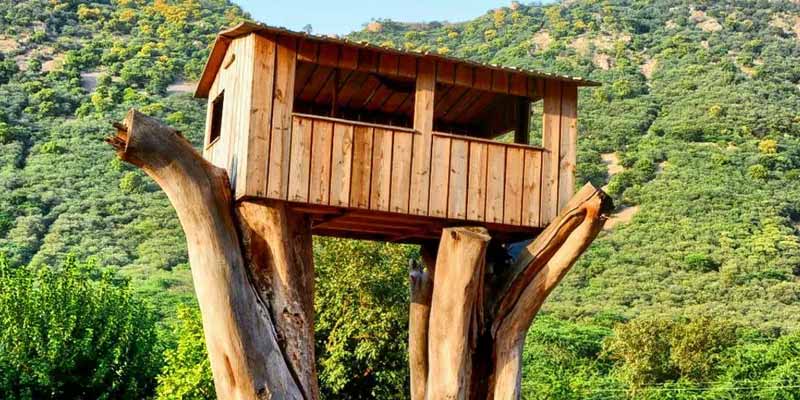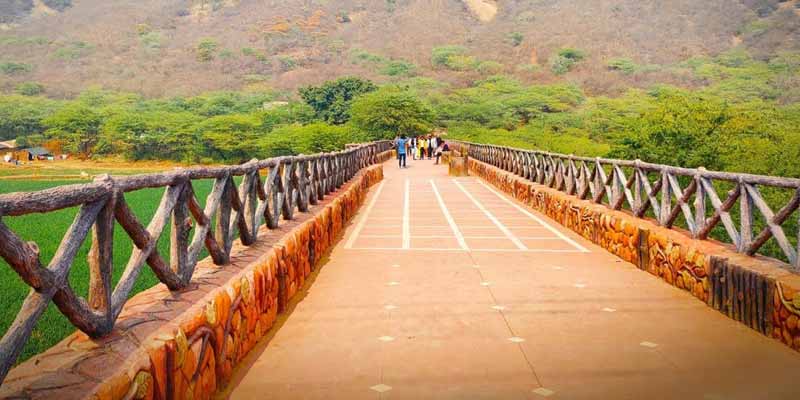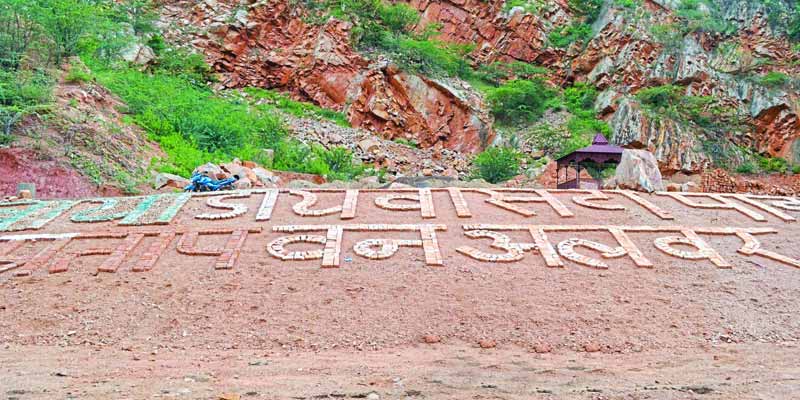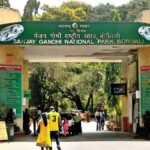Biodiversity Park Alwar is a significant green space aimed at conserving the natural environment and promoting local flora and fauna. Alwar, located in the state of Rajasthan, India, is known for its rich history and beautiful landscapes, including mountains and valleys which provide a unique backdrop for such a park.
The concept of a Biodiversity Park generally includes preserving native plant species, creating habitats for local wildlife, and offering educational opportunities about the environment and biodiversity. These parks are crucial in urban settings where natural landscapes are limited, providing an oasis for both biodiversity and the local population Rajasthan Monuments.
While specific details about the facilities, size, and the variety of species conserved in the Biodiversity Park Alwar might require direct reference or a visit, these parks typically feature walking trails, informative signboards about different species, and zones dedicated to different types of ecosystems. They often serve as excellent spots for bird watching, nature walks, and environmental education.
Visiting a Biodiversity Park like the one in Alwar is an excellent way to learn about local conservation efforts, the importance of preserving diverse biological communities, and the specific environmental challenges facing the region. Such parks play a vital role, Alwar Monuments.

Things to Do in Biodiversity Park Alwar
Visiting the Biodiversity Park Alwar can be a refreshing and enlightening experience, offering various activities for nature lovers, fitness enthusiasts, and families. Here’s a list of things you might consider doing when visiting the park:
Nature Walks: Explore the walking trails throughout the park to enjoy the natural beauty and serenity. These trails often pass through different habitats within the park, providing opportunities to observe diverse plant species and wildlife.
Bird Watching: Bring your binoculars along to enjoy bird watching. Biodiversity Park Alwar are home to many native and migratory bird species, making them ideal for bird enthusiasts to spot and identify various species.
Educational Tours: Often, biodiversity parks have educational programs that allow visitors to learn more about local flora and fauna. These tours can be particularly beneficial for students and families interested in learning more about environmental conservation.
Photography: With its scenic landscapes and rich biodiversity, the park is a fantastic spot for photography. Whether you are an amateur or a professional, the natural light and diverse subjects provide perfect conditions for beautiful photography.
Picnicking: Some areas within biodiversity parks are designated for picnicking. It’s a great way to relax and enjoy a meal surrounded by nature. Remember to clean up after yourself to maintain the cleanliness and ecological balance of the park.
Fitness Activities: For those looking to combine fitness with leisure, the park’s trails can be used for jogging or cycling. This provides a healthy and scenic alternative to regular city environments.
Relaxation and Meditation: The tranquil setting of the park is ideal for relaxation and meditation. Find a quiet spot to unwind, read a book, or simply enjoy the peaceful ambiance.
Participate in Conservation Efforts: Sometimes, parks organize events or programs aimed at conservation, such as tree planting days or educational workshops. Participating in these can provide a deeper understanding of ecological impact and conservation strategies.
Before planning your visit, it might be helpful to check if the park has any specific visitor guidelines, opening hours, and any scheduled events or activities. This will help you make the most of your visit to the Biodiversity Park Alwar.

Best Time to Visit Biodiversity Park Alwar
The best time to visit Biodiversity Park Alwar, like many outdoor attractions in Rajasthan, is during the cooler months from October to March. During this period, the weather in Alwar is pleasant, making it ideal for outdoor activities such as walking, bird watching, and exploring the park without the discomfort of excessive heat Rajasthan Budget Tours.
Here’s a breakdown of the seasons and their suitability for visiting the park:
October to March (Winter Season): This is the most recommended time to visit. The temperatures are cool and comfortable, ranging from about 8°C to 28°C. The cool weather is perfect for long walks and spending extended periods outdoors. The clarity of the air during these months also enhances the experience of bird watching and photography.
April to June (Summer Season): Summers in Alwar can be quite hot, with temperatures often soaring above 40°C. If you plan to visit during these months, it’s best to go early in the morning or late in the afternoon to avoid the midday heat. This time of year might be less ideal for those who are sensitive to heat.
July to September (Monsoon Season): The monsoon season brings rainfall to Alwar, which can make paths muddy and slippery, but the landscape becomes lush and green, which is a beautiful sight. The rain might cause some inconvenience, so if you’re visiting during this season, carrying rain gear is advisable. The cooler temperatures and overcast skies can also make daytime outings more pleasant than in summer Biodiversity Park Alwar.

How to Reach Biodiversity Park Alwar
Reaching Biodiversity Park Alwar is relatively straightforward, whether you’re traveling from within Rajasthan or from other parts of India. Here’s how you can get there:
By Air: The nearest airport to Alwar is the Jaipur International Airport, which is about 162 kilometers away. From the airport, you can hire a taxi or take a bus to Alwar. The journey by road takes approximately 3 to 4 hours, depending on traffic conditions.
By Rail: Alwar is well-connected by train to major cities like Delhi, Jaipur, and Mumbai. Alwar railway station is the main station in the city. From the station, Biodiversity Park is just a short taxi or auto-rickshaw ride away. Local transport is readily available outside the station.
By Road: Alwar is connected to nearby cities via well-maintained roads. If you are coming from Delhi, the drive can take about 3 hours via the NH 48. Buses from Delhi, Jaipur, and other major cities frequently ply to Alwar, making it an accessible option for those preferring public transport.
Local Transport: Once in Alwar, you can use local taxis, auto-rickshaws, or even cycle rickshaws to reach the park. These are affordable and can be easily hailed from anywhere in the Biodiversity Park Alwar.
For a seamless trip, consider checking the current status of transport options and possibly booking your tickets in advance, especially during peak tourist seasons or local festivals.








